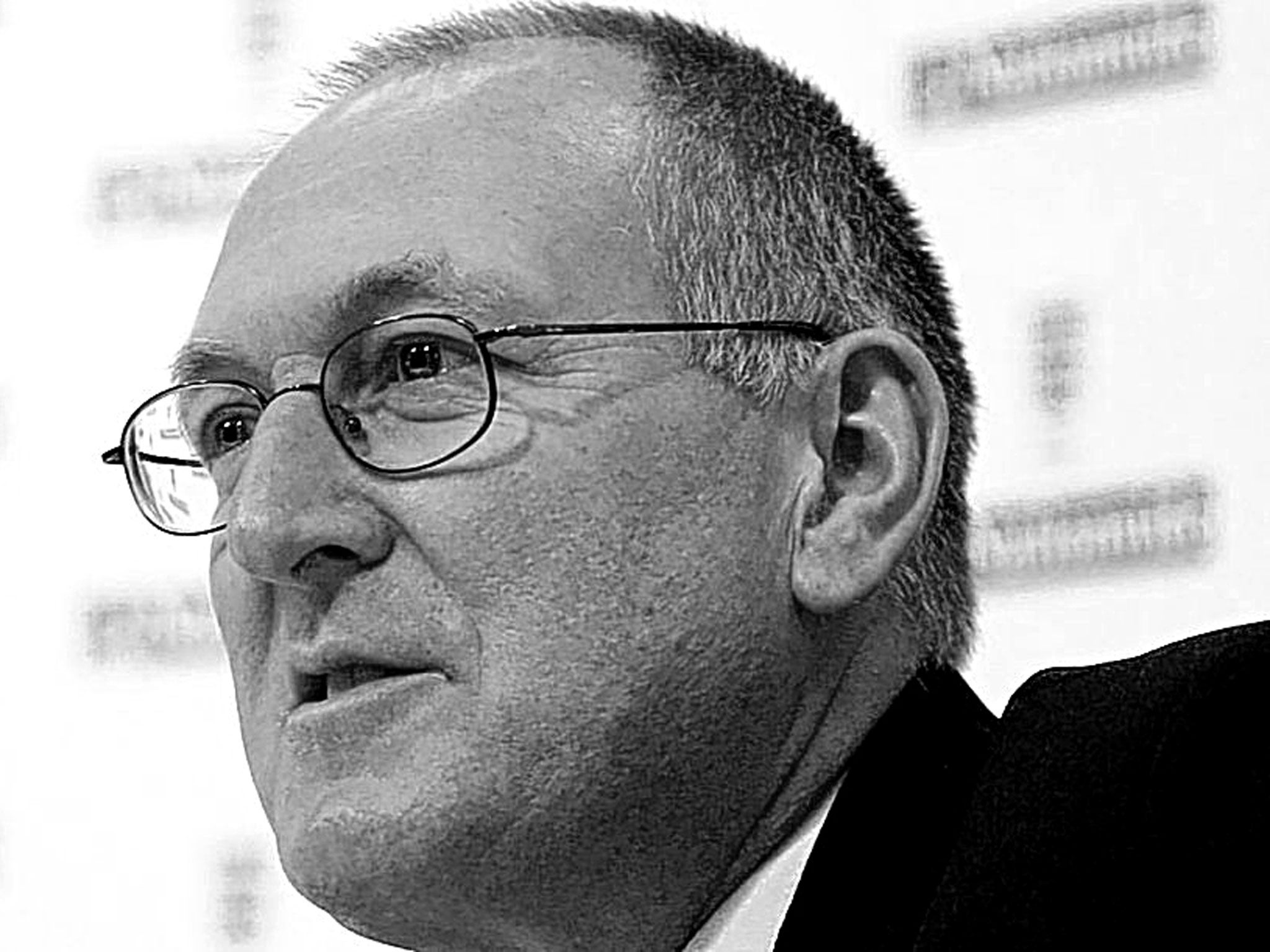Paul Goggins: Respected and admired Labour MP whose politics and social activism were fuelled by his Roman Catholic faith

The unusually subdued and non-partisan mood that came over MPs during Wednesday's Prime Minister's Questions was partly attributable to the shock caused by the early death of the conscientious and popular Labour MP, Paul Goggins. "He was a kind, brilliant man who believed profoundly in public service," David Cameron told the House, while Ed Miliband described him as "someone of the deepest principle."
Goggins was a Labour Party member for 38 years, and a Roman Catholic who believed that helping the poor and disadvantaged was a religious duty, which he put into practice as a social worker specialising in childcare before he became a full-time politician. He was a founder of the parliamentary group supporting the Catholic charity, Cafod.
Last February he was one of a handful of Labour MPs who voted against same-sex marriages. In a letter to a gay rights campaigner, he pointed out that he had supported civil partnerships, adding: "I know from personal experience that same sex couples can be excellent parents. I do not, however, believe that this can be a foundation for giving such relationships equivalence to marriage." By contrast, he was "named and shamed" by the Catholic Herald in June 1998 for his "reprehensible" decision to vote in favour of equalising the age of consent for heterosexuals and homosexuals at 16, a move opposed by Basil Hume, the head of the Catholic Church in England and Wales.
During a BBC interview in 2004 he claimed that his uncle Edmund Goggins, a Manchester teacher, knew John Cunliffe, creator of Postman Pat, and gave him the inspiration for the character of Mrs Goggins, the grey-haired postmistress whose catchphrase was "Ee, it's a bad job." True or false, it was because of that story that during his time at the Home Office he was known in the department as "Mrs Goggins".
Paul Gerard Goggins was born in 1953. His father, John, was a headmaster, his mother, Rita, a medical secretary. After he left St Bede's Grammar School in Manchester he went to Ushaw College, Durham, which was then the main training ground for Catholic priests, but left when he was 20 to train as a social worker. He was working in childcare in Liverpool while he was still at college, and for eight years he ran a children's home in Wigan.
He entered national politics via the campaigning organisation, Church Action on Poverty, which appointed him its national co-ordinator in 1989. He made it his mission to dispel the idea that poverty was disappearing as general living standards went up, when, as he told The Independent in June 1989, anyone with "even minimal sensitivity" could see that the gap between rich and poor was widening. CAP was not a formal part of any church hierarchy, describing itself as being "in association" with the Council of Churches, and Goggins was not shy of political controversy. Before the 1992 general election he urged fellow Christians to vote for candidates who showed concern for the poor. In 1996 he took on the chairmanship of the UK Poverty Coalition, whose declared aim was to eradicate poverty – though he was accused by the Conservative MP Tim Yeo of "using the socialist and trade-union agenda and cloaking it in Christian garments."
By then his political loyalties were out in the open. He had joined the Labour Party in 1975 and was elected to Salford District Council in May 1990. In April 1996 the veteran Labour MP Alf Morris announced his intention to retire, setting off a selection contest that attracted a clutch of councillors and two former MPs. Goggins won, with the backing of the country's second biggest union, the TGWU, and in 1997 easily took the revised constituency of Wythenshawe and Sale East.
He was a backbench MP for only 15 months before being appointed parliamentary secretary to the social security minister, John Denham, and remained in government until Labour's defeat 12 years later. In December 2000 he was appointed PPS to the Education Secretary, David Blunkett, and moved with him to the Home Office after the 2001 election. In May 2003 he was made a junior Home Office minister, responsible for prisons and probation, and in 2006 he was moved to the Northern Ireland office, to take charge of health, security and prisons. In 2007, shortly before Tony Blair stepped down, he was promoted to Minister of State, with added responsibilities.
After the 2010 election he became a backbencher for the first time in 15 years and ran the unsuccessful leadership campaign of his friend Andy Burnham. He was a lifelong Manchester City fan. He collapsed while jogging with his son near his Salford home on 30 December and died a week later. He leaves a wife, Wyn, sons Matthew and Dominic, and a daughter, Theresa.
In 1996, Alf Morris told me that he had anointed his successor in Wythenshawe, who would continue his championship of the disabled, writes Tam Dalyell. And he did. In particular, he looked after David Blunkett. I often wondered, between 1997 and 2005, if Blunkett could have been the hugely successful Cabinet minister he was without Goggins' loyal and caring support.
Paul Gerard Goggins, campaigner and politician: born Manchester 16 June 1953; MP since 1997; married 1977 Wyn Bartley (two sons, one daughter); died Salford 7 January 2014.
Join our commenting forum
Join thought-provoking conversations, follow other Independent readers and see their replies
Comments
Bookmark popover
Removed from bookmarks